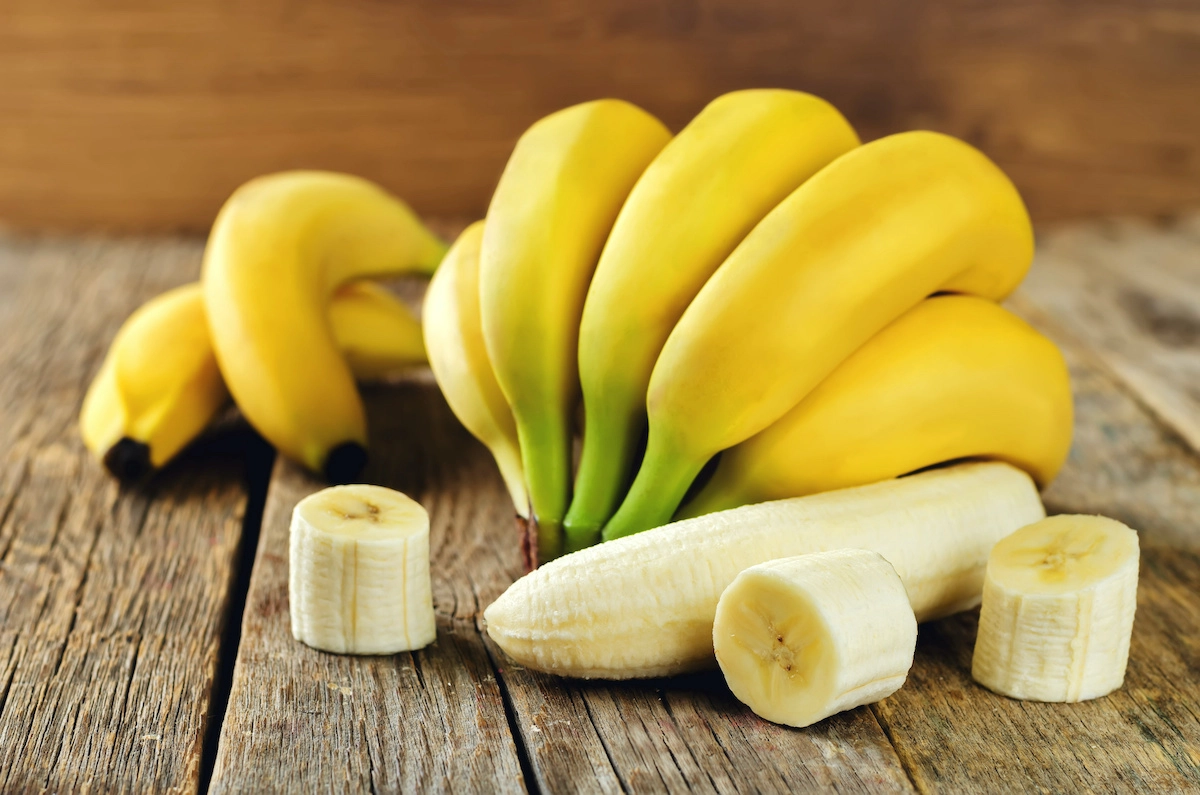
Bananas are low in purines and contain some vitamin C, which may make them a good addition to a balanced diet for gout. They also provide other vitamins, antioxidants, potassium, and fiber.
However, bananas are also a source of fructose, and some evidence suggests that high amounts of fructose may increase uric acid levels. Eating a lot of bananas may therefore be a trigger for some people. It is also worth noting that diet alone is often insufficient to control gout symptoms.
Bananas may be okay for a person with gout to eat. However, this depends on the individual. People can have different reactions to foods depending on several factors, such as:
- what else they have eaten
- their current uric acid levels
- whether they are receiving medical treatment for gout
Bananas are low in purines, but they do contain some. If a person currently has high levels of uric acid, eating bananas may add to this.
However, people with well-controlled uric acid levels may find bananas completely safe to eat as part of a low-purine diet.
Another factor to consider is fructose. Although studies on the relationship between fructose and uric acid levels have had mixed results, a 2019 review suggests that consuming high amounts of fructose may contribute to the production of uric acid.
The authors say that eating a moderate amount of whole fruits is likely safe for people with gout but that the effects of consuming fruit juices or smoothies require more research.
Are bananas good for gout?
There is no research specifically investigating if bananas are beneficial for gout. However, they have several properties that may have a positive effect.
According to the United States Department of Agriculture, one banana contains around 16% of the recommended daily value of vitamin C. A 2021 review notes that higher levels of vitamin C may increase the metabolism of uric acid, breaking it down and reducing overall levels.
Bananas are also high in potassium, which is crucial for maintaining proper kidney function. Since gout can impair kidney function, including potassium-rich foods such as bananas in the diet may support these organs.
However, there is not enough research to prove that vitamin C, potassium, or bananas help reduce gout symptoms in humans. No single food is a proven treatment for gout. Often, diet alone is not enough to prevent flares.
What other fruits are good for gout?
Many fruits have a low purine content and contain essential nutrients, such as vitamin C. As a result, many people with gout can eat fruits without triggering symptoms.
Some may want to focus on fruits that are low in fructose but high in vitamin C, such as:
- oranges
- lemons or limes
- grapefruit
- strawberries
- raspberries
Some evidence also suggests the following fruits may actively help lower uric acid levels:
- cherries
- apples
- pineapples
Are any fruits bad for gout?
While whole fruits are generally okay to eat with gout, this depends on a person’s situation. Diet influences gout in complex ways, and purine content is not the only consideration.
For example, eating a lot of fruits or fruit juices may mean consuming high amounts of fructose, which could lead to increased uric acid levels.
However, the fructose content in whole fruits is likely safe for most individuals, as they contain less fructose. The fiber and other nutrients in fruit may also help mitigate any potential adverse effects.
Another consideration is the overall purine content of certain fruits. While fruits are generally lower in purines than other food groups, some, such as grapes and raisins, may have slightly higher levels.
Other foods to eat and avoid
In addition to fruits, the other things a person eats play a role in gout management. It may help to include the following:
- Low purine foods: These include whole grains, dairy products, pulses, and most vegetables. Dairy products, in particular, may help reduce uric acid levels.
- Healthy fats: This includes fats or oils from avocados, nuts, seeds, and olives.
- Lean proteins: People can try choosing lean protein sources, such as skinless poultry, fish, and plant-based protein options, such as soy or tofu.
- Hydrating beverages: It is best to stay hydrated by drinking plenty of water throughout the day. Hydration helps dilute uric acid and promotes proper kidney function. Coffee and tea are also okay.
Foods to avoid or limit include:
- high purine foods such as red meats, organ meats, and certain seafood
- sugary snacks and beverages
- excessive amounts of caffeine
- alcohol
Remember that everyone’s gout triggers vary. It is important to notice the body’s response to different foods and ways of eating to find an approach that works.
Many people with gout should be able to eat whole bananas in moderation. If a person is still experiencing symptoms, it is best for them to speak with a doctor.
Source: https://www.medicalnewstoday.com/articles/bananas-and-gout?











